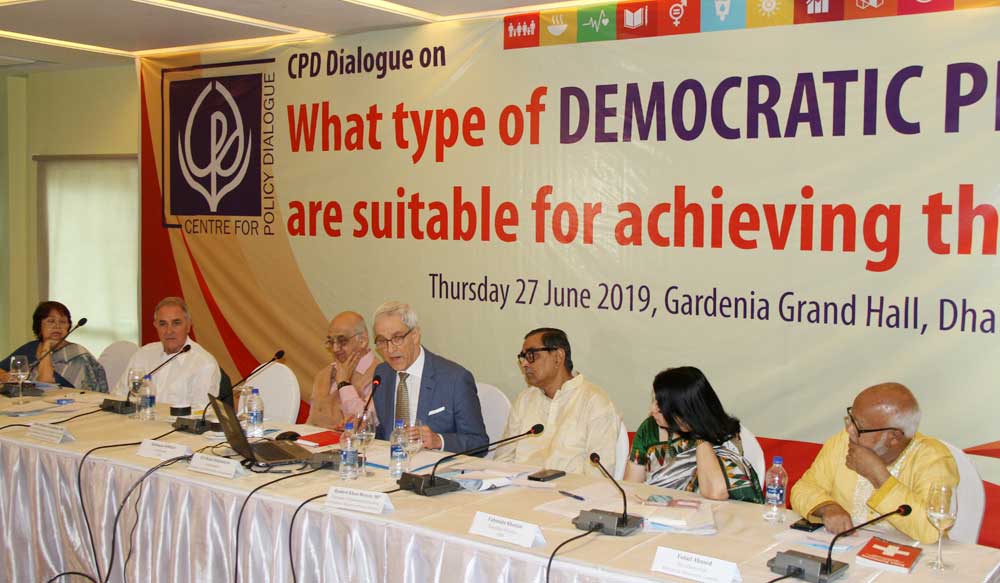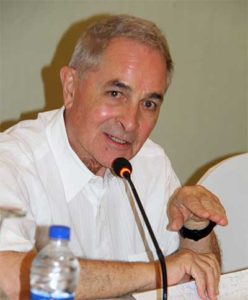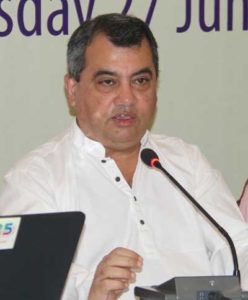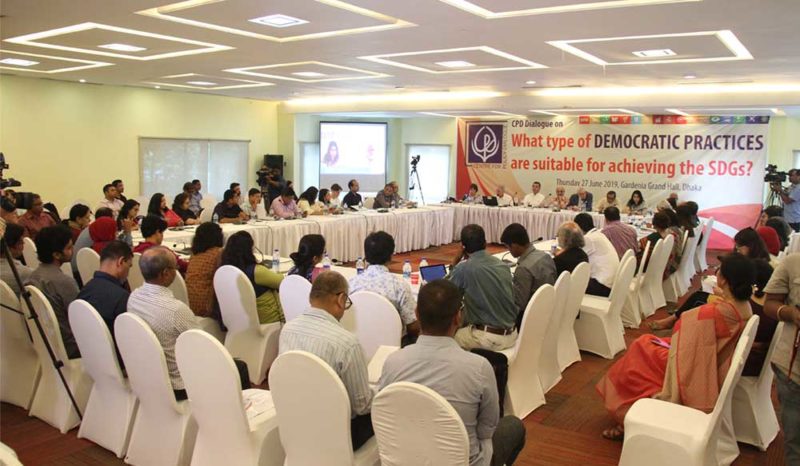
Formulation of a meaningful strategy through an inclusive and participatory political system is important to achieve the Sustainable Development Goals (SDGs). Accountability of the State institutions and strengthening of local governance are practices that are key enablers of democracy. Such democratic practices will help ensure proper implementation of the SDGs and sustain development even beyond 2030.

These observations were made at the CPD Dialogue on “What type of democratic practices are suitable for achieving the SDGs?”, held on 27 June 2019 at Gardenia Grand Hall, Dhaka. Mr Peter Niggli, Swiss Author, Journalist and Development Policy Expert made the keynote presentation titled, “Are citizens ready to approve democratically the policies necessary to reach the SDGs: Some reservations from the view point of a hyper-democracy.” Mr Saber Hossain Chowdhury, MP, Chairman, Parliamentary Standing Committee on Ministry of Environment, Forest and Climate Change and Honorary President, Inter-Parliamentary Union (IPU) was the Chief Guest at the dialogue. H E Dr René Holenstein, Ambassador of Switzerland to Bangladesh and Mr Rashed Khan Menon, MP, Chairman, Standing Committee on Ministry of Social Welfare, attended the programme as Special Guest and Guest of Honour, respectively. Professor Rounaq Jahan, Distinguished Fellow, CPD and Dr Tofail Ahmed, Vice Chancellor, Britannia University, Cumilla offered comments as Distinguished Discussants. Professor Rehman Sobhan, Chairman, CPD chaired the event. Dr Fahmida Khatun, Executive Director, CPD moderated the session.
Dr Fahmida Khatun initiated the dialogue stating the importance of the good democratic practices in achieving the SDGs. She informed the dialogue on how Goal 16 (Peace, Justice and Strong Institutions) of the SDGs are very much relevant to the democratic practices. Mentioning the vastness of the topic, Dr Khatun shared how other discussions alongside institutions, governance, security and rule of law, and inequality are relevant to democratic practices constructive to the development of the society.

Using the example of democratic practices in Switzerland, Mr Peter Niggli established how people’s participation in the democratic processes can influence and contribute to achieving the SDGs. He further highlighted the importance of public opinion and role of civil society in formulating strategies to achieve the SDGs. Mr Niggli identified environmental/ecological degradation, economic difficulties originating from unstainable mode of production and consumption, rising inequality within and among societies, and a slow progress in social and economic transformation to be the four main challenges in the western democracies.
Referring to one of the suggestions by Mr Niggli to use referendum as a democratic tool in taking public opinion for policy formulation, Professor Rounaq Jahan discussed how the democratic practices are very different in Bangladesh as compared to Switzerland. “We are right now at a situation of protecting very basics of democracy”, said Professor Jahan.
Adding to the discussion of varying democratic practices, Dr Tofail Ahmed mentioned how the democracy in Bangladesh uses an ‘executive model’, where the policy making process is restricted to the elected representatives having very little space for public opinion. He suggested to localise the SDGs by absorbing the SDGs in the activities of local authority and local government of Bangladesh. Dr Tofail also urged for the need of realising the importance of rural local government alongside the urban local government.

Mr Saber Hossain Chowdhury, MP added that democratic practices should not only be confined to elections but between elections as well. As to suggestions of using referendum as a tool, Mr Chowdhury feels that it can be a useful tool in devising general policies and not for SDGs only. He also feels that SDGs achievement won’t be possible without the successful implementation of Goal 16.

Dr René Holenstein placed special emphasis on the importance of power sharing in a democracy. Stating the example of Switzerland, Ambassador Holenstein talked about how their practice of empowering the local level administration and people has been effective in ensuring participatory governance in the society.
Mr Rashed Khan Menon, MP spoke on the need of collective efforts between civil society and the government. He feels that there is a lack of pressure from the civil society and academics regarding political reforms. “SDGs will not be achieved if we are not harmonised”, said Mr Menon.
Professor Rehman Sobhan also acknowledged the importance of the role of civil society for achievement of the SDGs. According to him, the role of civil society should not be limited to advocacy, they should also play a part in the development process along with the government.
The floor comprised of development partners, academics, diplomats, youth representatives and journalists from the digital and print media, among others.


